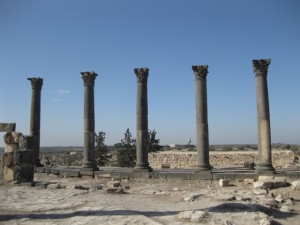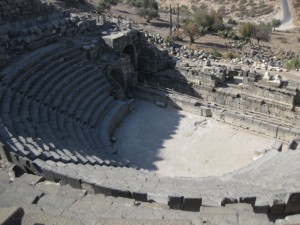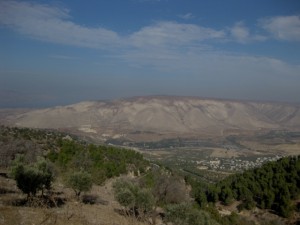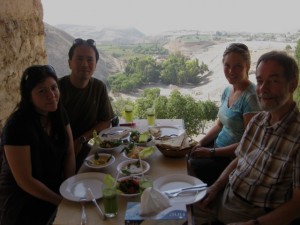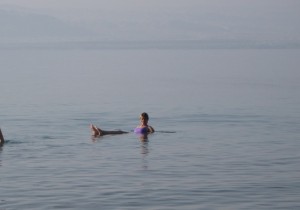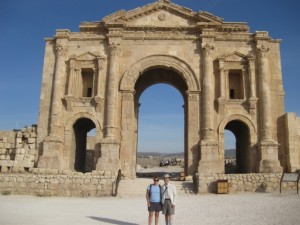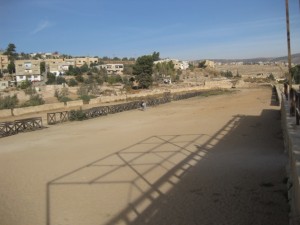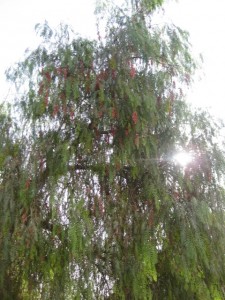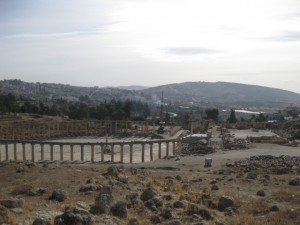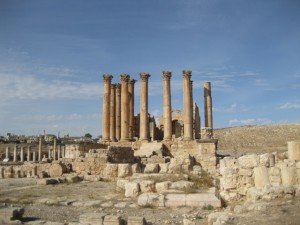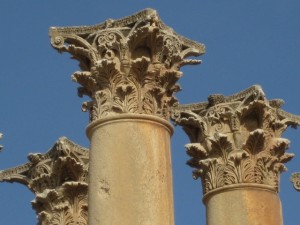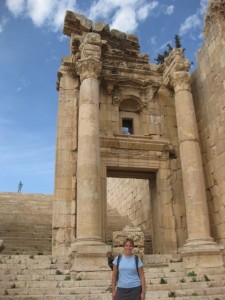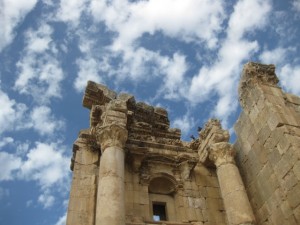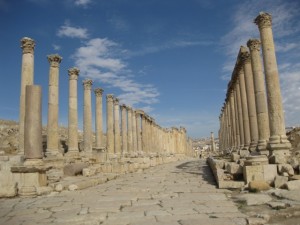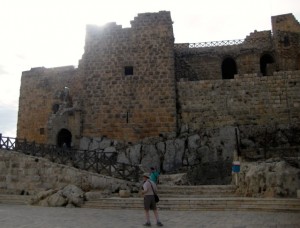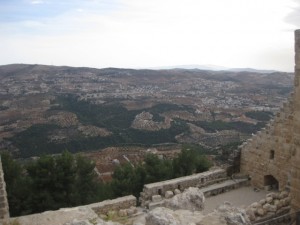The last couple of days we have been exploring the northern-west portion of Jordan while based in Amman. The country is relatively small by North American standards only taking 5 hours to drive from the norther Syrian border to the southern tip at Aqaba on the Red Sea. The focus has been on visiting the wealth of Roman ruins which dot Jordan.
We started yesterday with a visit to the ancient Roman town of Garada at Um Qais at the extreme northern end of the country. The ruins were pretty interesting as they were primarily made out of black basalt stone which is native to the area but much harder than the usual limestone used.
They also provided an excellent view into the northwest corner where we could see the fences dividing Syria, Jordan, and Israel. In the distance we could see the Sea of Galilee and the mountains of Lebanon beyond. The Golan Heights spanned the ridge right in front of us and were divided between Syria and Israel. We were actually able to go down to the bottom of the valley and get quite close to the fences.
Being so close to the borders, raised many questions about relations amongst Israel and its Arab neighbours, especially since we have now had the Israeli perspective. Dad and I have been trying to get our heads around the history and causes, but it is so complex that I do no envy the peace negotiators their jobs! I asked a question about the 1994 peace agreement between Israel and Jordan and unfortunately this struck a nerve in our guide who proceeded to rant for 20 minutes about how it is the Palestinians human right to take back the land stolen from them by the Israelis. I’ve already noticed he always calls it Palestine and not Israel and has a hard time spitting out the word “Israel”. At the least I can say it was interesting to hear what are his honest views and not just the dictated line from the travel agency. Needless to say there have been no further political discussions since yesterday’s rant. Personally I’m a bit afraid to prod the tiger so I guess my questions will go unasked (and you know how hard that is for me!).
After a lovely lunch overlooking the general area, we headed down to the Dead Sea for a repeat of our experience from last week. The Jordan day use access point is on the northern side of the sea while we were previously at the very southern end. This new spot was much more sandy and the entry into the water was much easer on the feet for those without flipflops. It was lovely to float around again and my skin felt lovely afterwards.
Today we went north again to see more Roman ruins. This time however they were truly impressive. The site was Jerash about 1 hour north of Amman. They have worked in various international cooperations to restore large portions of the significant buildings of the site including two amphitheaters, the north and south gates, the cardo (columned street), hippodrome, and temples. It was a very interesting site, though I wonder how much of a debate there is amongst archeologists about whether it should be rebuilt. I know that some think that we only can guess what it looked like so should not try. However, as a tourist it makes it much more engaging and interesting to see it rebuilt.
On our way back south to Amman we stopped at a fortress castle, Ajloun Castle, built by the Saracens in the 12th and 13th centuries as a defence against the invading crusaders. Tomorrow we will see a big fortress built by the crusaders so it will be interesting to compare.
Prior to coming to Jordan, in doing research for the trip I had found that people highly recommend a Jordanian wine called “Saint George”. As there is liquor store up the street from our hotel we procured a small half-bottle and with Bearic’s help enjoyed it this evening.

